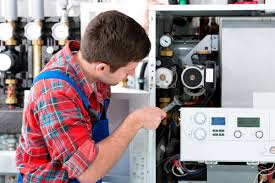
Find out when it's time to replace your A/C system and what to understand before you buy.
Whether you live in a warm or cold climate, it's always an excellent idea to have a look at your heating, ventilation and cooling (HEATING AND COOLING) system.
How do you understand if you require a new system-- and what do you need to know prior to purchasing a brand-new A/C system to make a smart purchase?
When to Change
You might need to change your system if any of these indicators take place:
- You see a spike or upward trend in your energy costs.
- You're spending for regular repair work.
- Your house isn't as comfy as you would like it to be; perhaps it has locations or cold areas, is too dry or too humid, or has big temperature swings.
- Your boiler, heater or a/c unit is more than 12 years old.
Follow these general standards to approximate the life expectancy of your system: Condensers and air handlers usually last 12 to 17 years; boilers normally last 15 to 25 years; and furnaces can last 15 to 20 years.
Contact someone well-informed and reliable to assist you comprehend whether you require to replace any part of your system. A lot of HEATING AND COOLING companies use a no-cost evaluation of your present system and will go over choices.
What to Ask
To identify if you need a new HVAC system, address the following questions:
1) How crucial is energy performance to you?
There are a great deal of measurements for effectiveness, and each system has its own type of measurement. It's constantly a sure thing to choose an ENERGY STAR-certified system.
2) What's the roi?
There's normally a seven-to-15-year payback period for a brand-new condenser, air handler, boiler or heating system. Having these new items will help increase your house's resale value.
3) What size unit do I need?
Size is https://furnace-repair-brampton.ca identified with a load estimation. For example, the boiler computation is based upon the number and size of radiators and baseboards. Cooling, heatpump and furnace loads are based primarily on cubic footage, but there are other elements, including the direction your house faces, insulation, and the size, type and number of windows you have. Needless to say, it gets made complex. HEATING AND COOLING professionals have software application that can carry out the calculation for you.
4) Exist other expenses related to setup?
There could be included expenses, if, for example, someone requires to update their electrical panel to accommodate the Air Conditioner system. Think about if you want a humidifier or air purifier-- an excellent concept if somebody in the home has allergic reactions, asthma, dry skin or bloody noses.
5) What system is right for me?
This response depends upon your budget plan and the convenience you desire. A higher-end system will be more efficient, offer you more of even temperature levels throughout your home and have less humidity swings, Kenyon says.
You may likewise consider your return on financial investment. If you're going to be in your house for 20 years, you might want to invest more for a higher-end system.